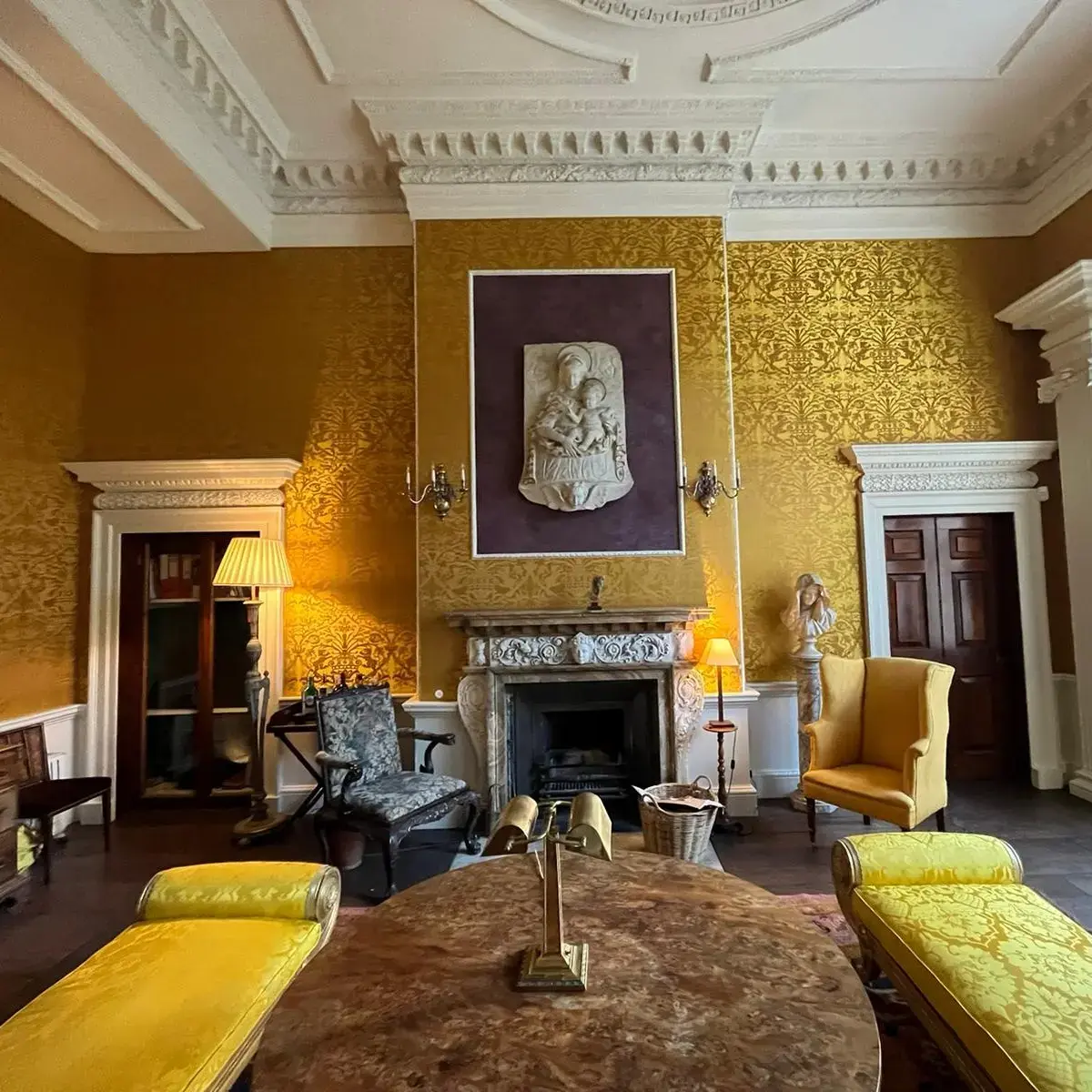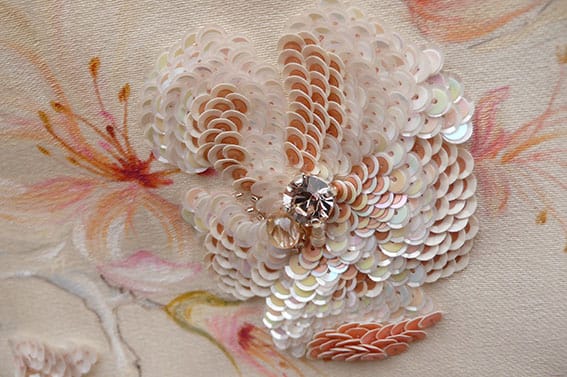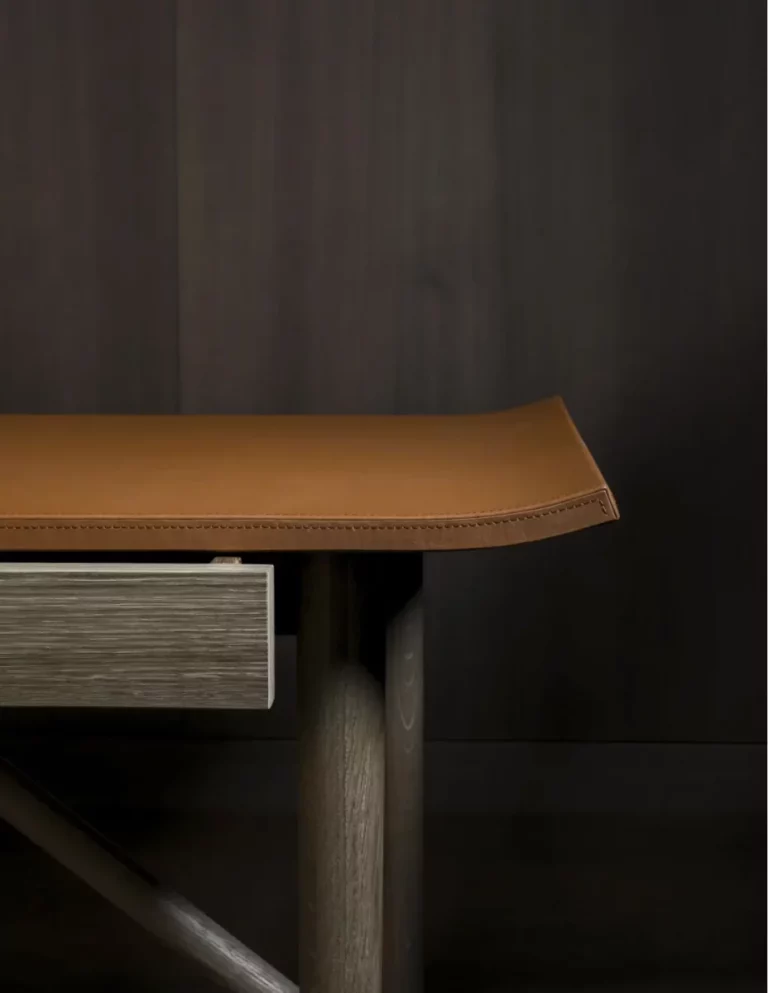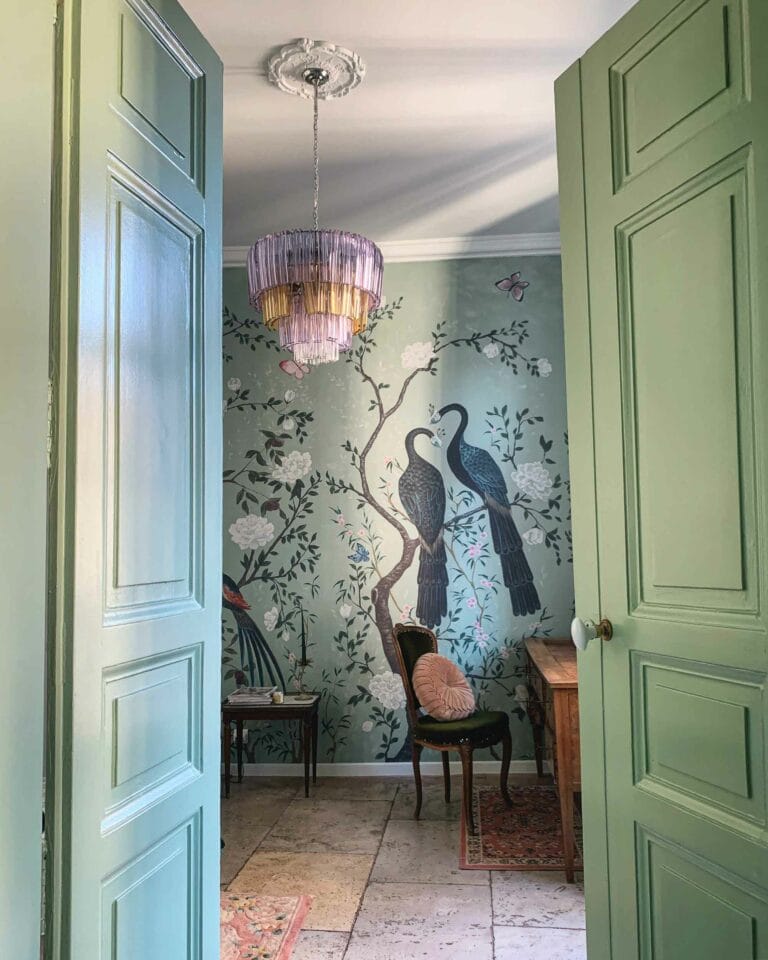Stephen Franklin: Guardian of traditional excellence in the art of fabric walling
Stephen Franklin: Master of the ancestral art of upholstery and fabric walling
In the demanding world of traditional upholstery, where centuries-old techniques meet contemporary excellence, Stephen Franklin stands as an undeniable reference. With nearly fifty years of expertise, royal clientele, and unprecedented distinctions awarded by the most prestigious craft institutions, this British craftsman embodies the absolute mastery of his art. This is the portrait of a man who has dedicated his life to preserving and transmitting a disappearing craft.
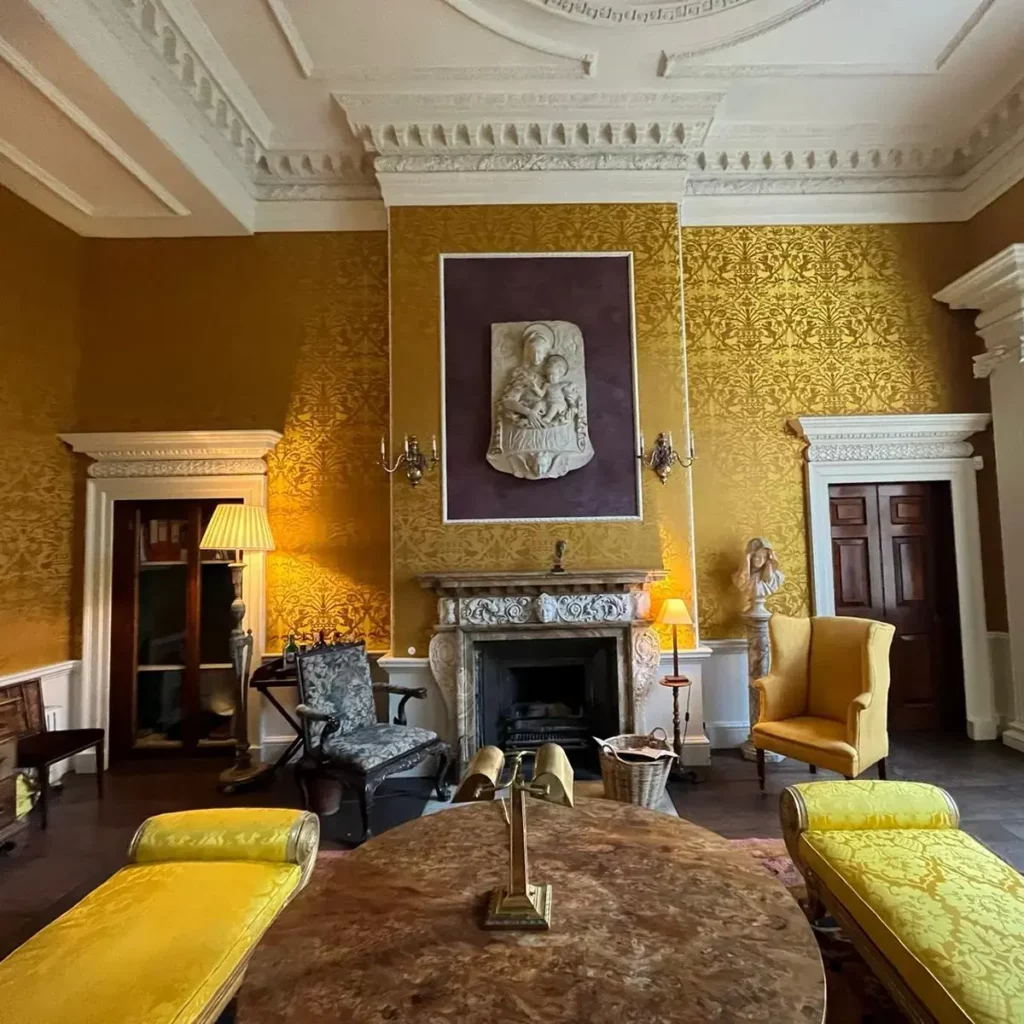
Do you know fabric walling?: The art of dressing walls with textiles
Fabric walling, or tenture murale, is an ancestral technique that consists of dressing walls with stretched fabrics on a structure of wooden battens. Between the support and the textile, wadding provides softness and depth.
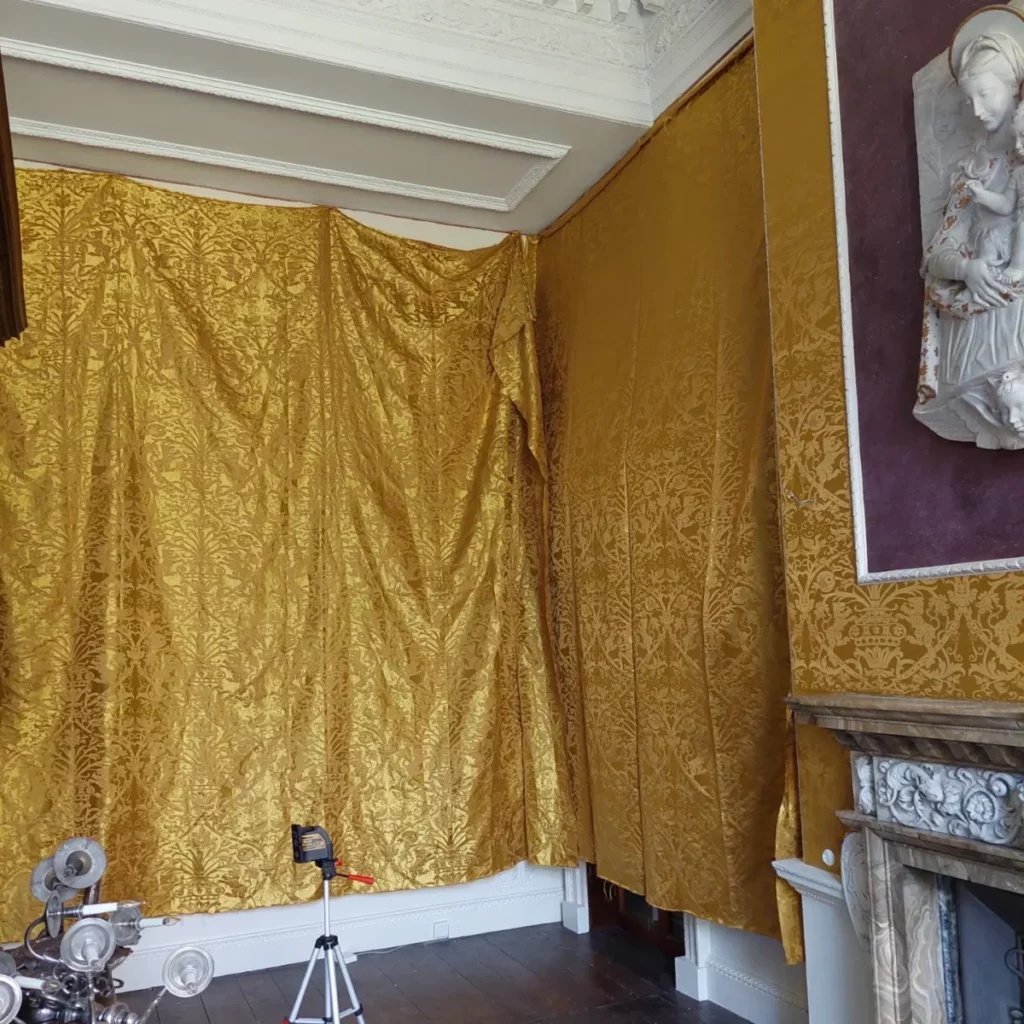
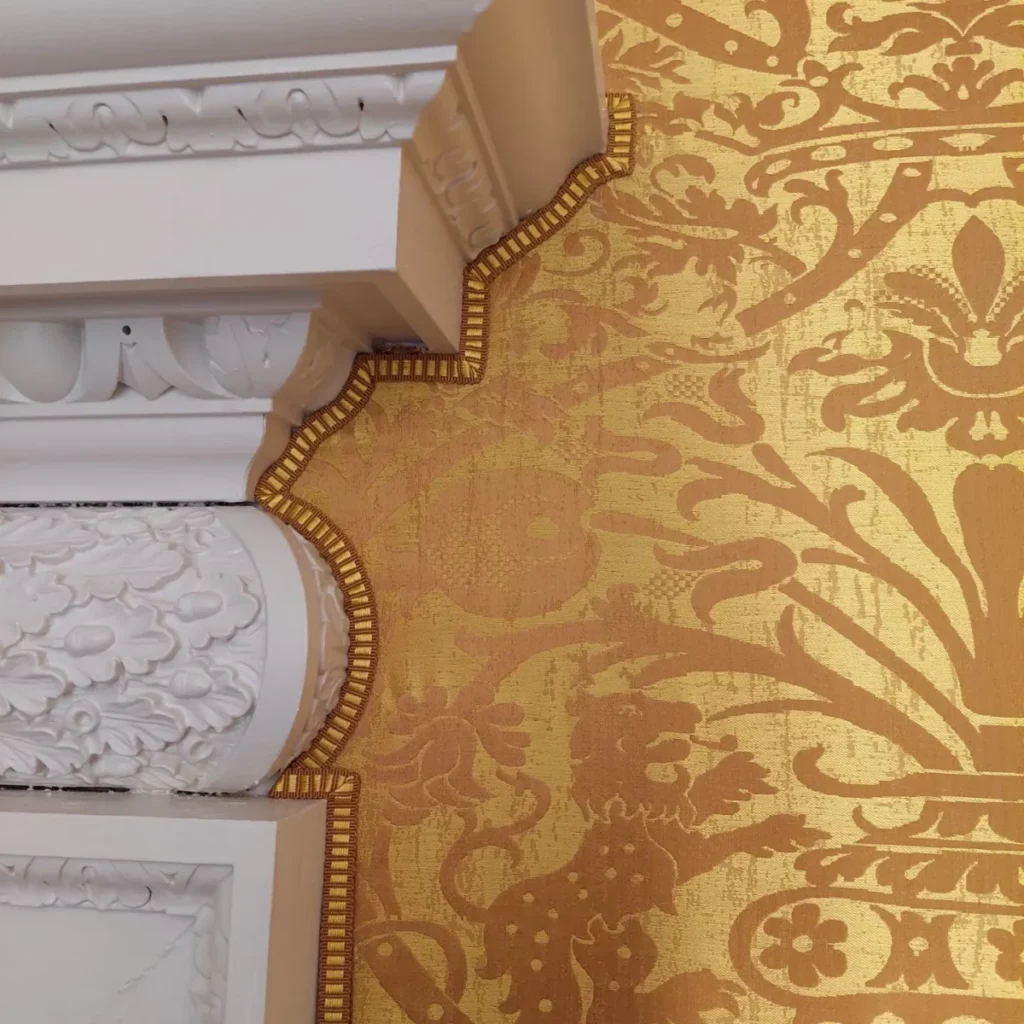
The final result can be modern with invisible finishes, or traditional with the addition of braids and other trimmings that accentuate the contours. This discipline transforms walls into textile surfaces, creating enveloping and luxurious atmospheres that sublimate space.
Biography: The foundations of an exceptional journey
Stephen Franklin’s story begins in 1974 in London, where he embarked upon the most rigorous training available in the upholstery trade. Unlike the abbreviated apprenticeships common today, Stephen Franklin completed a full five-year indenture—a traditional contract where his father formally committed him to intensive training under master craftsmen. This ancient system, inherited from medieval guilds, creates artisans of unmatched skill and dedication.
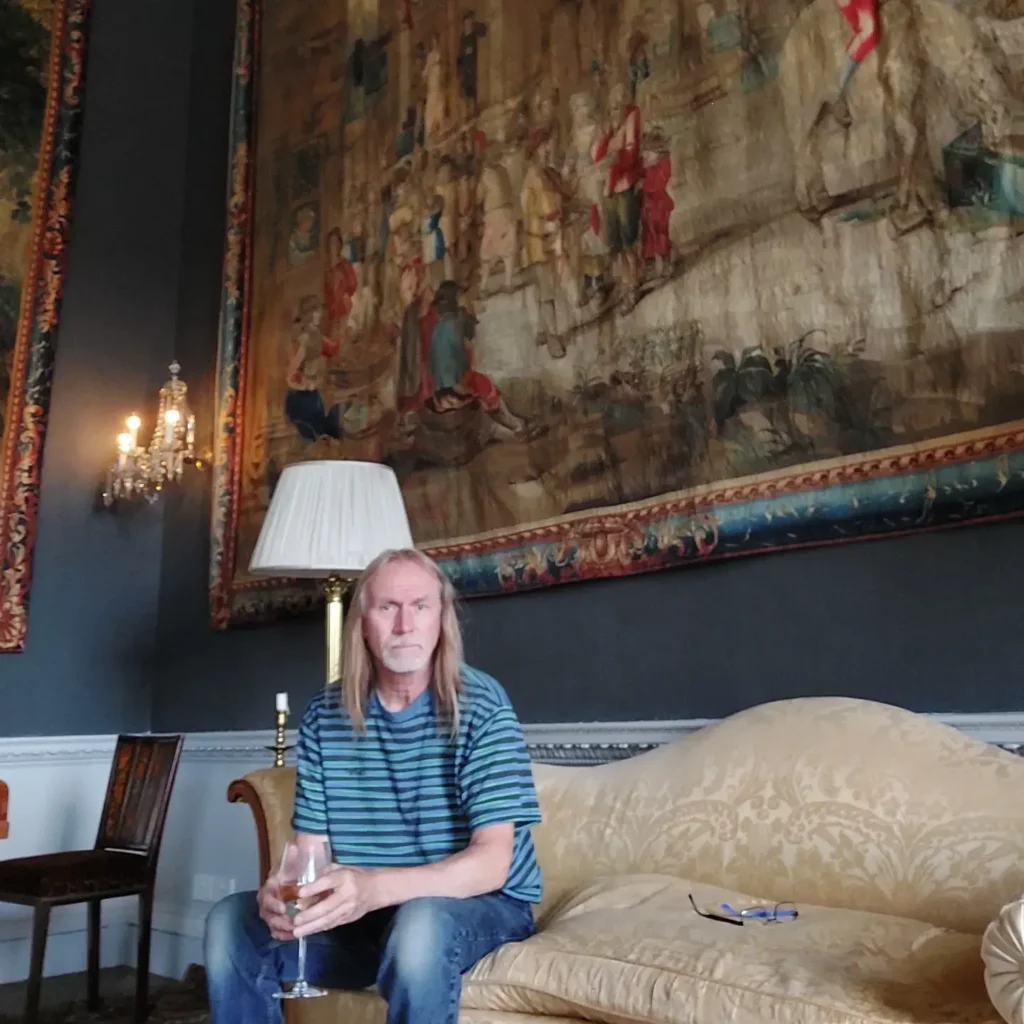
Following his apprenticeship, Stephen Franklin undertook an additional two years as an “improver,” further honing his craft before earning in 1979 the coveted title of Journeyman Upholsterer. This seven-year foundation provided him with skills that have become increasingly rare: the deep, intuitive understanding of materials, techniques, and traditions that can only come from true immersion in the craft.
International training and influences
What sets Stephen Franklin apart is not just the length of his training, but its extraordinary breadth and quality. During his formative years, he had the privilege of learning from master upholsterers who had worked at some of the most prestigious firms in British furniture history: Albert Chapman, Howard & Sons, Maples, Charles Hammond, Morley Upholstery, and Norrington & Adams. These were not merely commercial enterprises—they furnished the great houses of Britain and shaped the aesthetic sensibilities of entire generations.
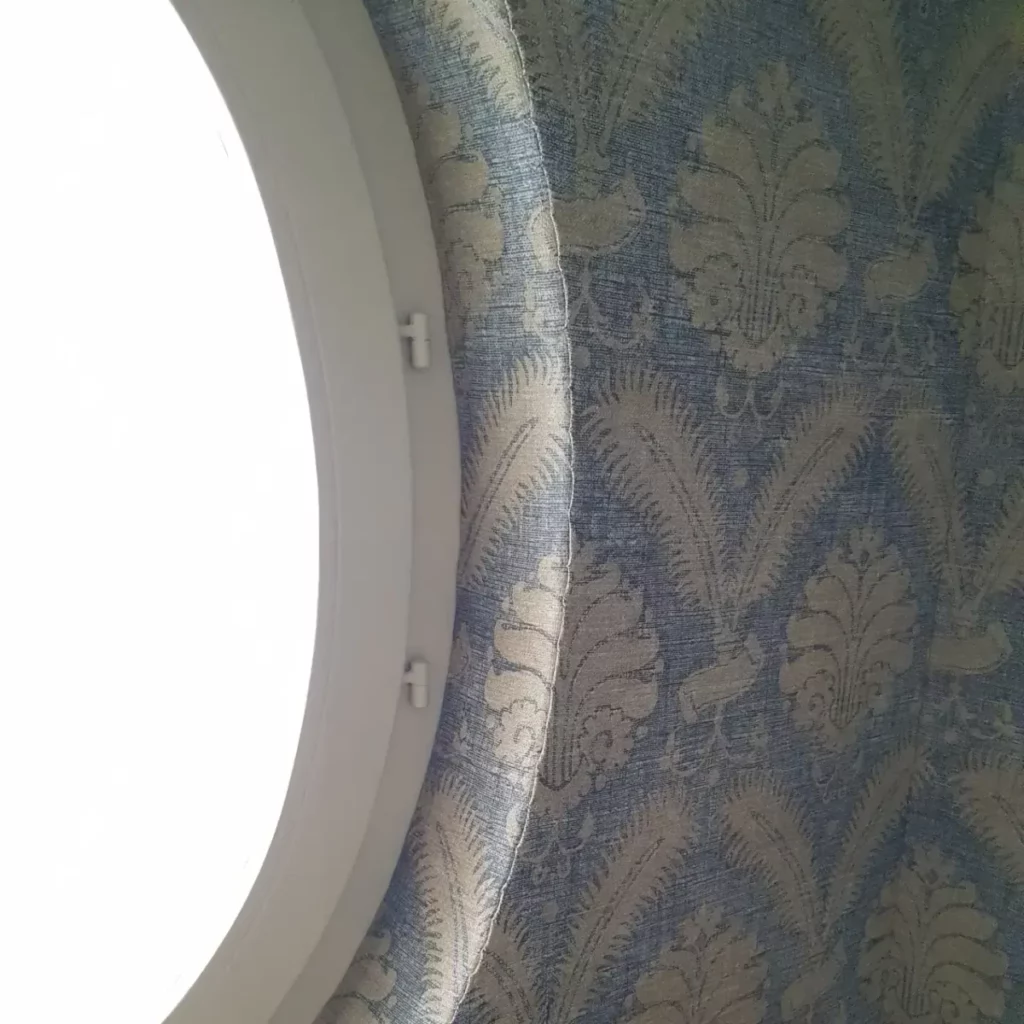
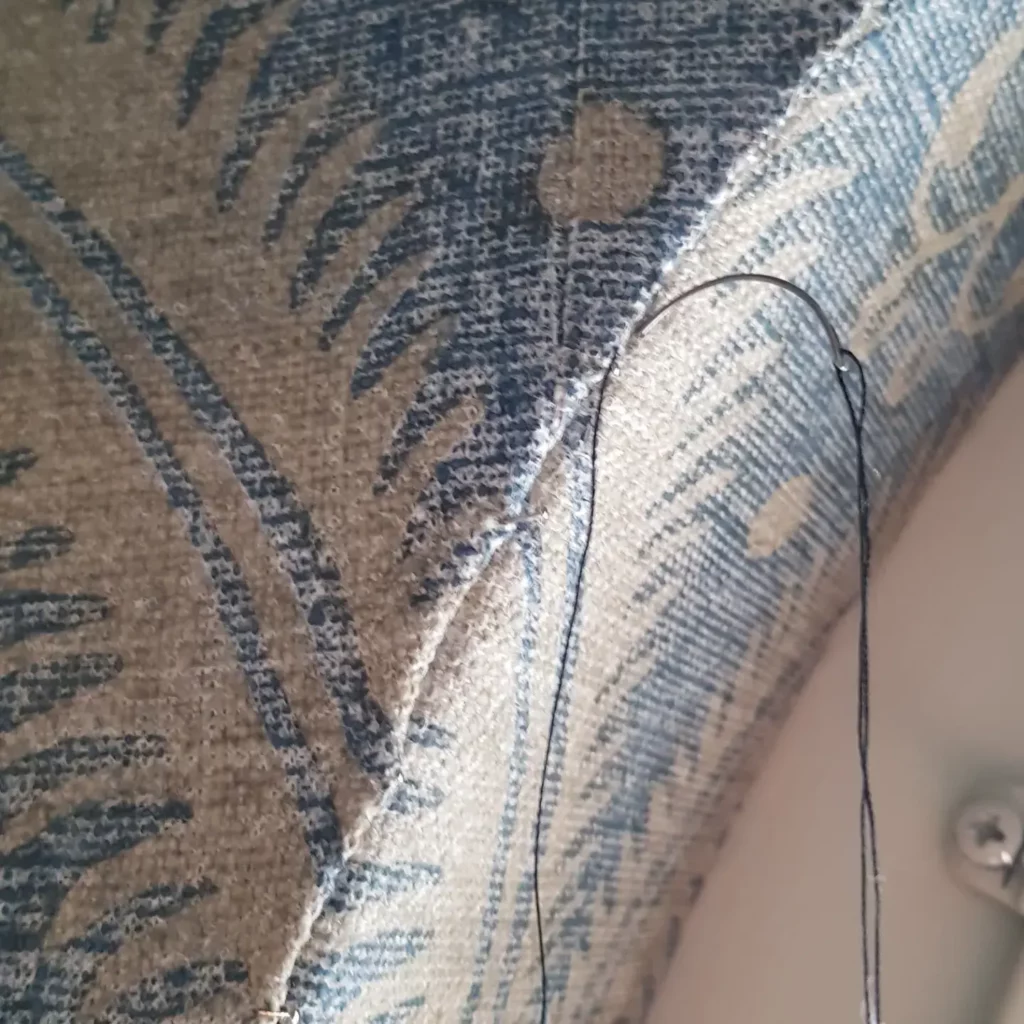
Stephen Franklin’s education transcended national boundaries. He studied techniques with master craftsmen in France, Germany, Australia, and America, absorbing the finest traditions from each culture and synthesizing them into his own unique approach. This international perspective has given him an unmatched versatility and depth of knowledge that places him in a class entirely his own.
Emblematic works and prestigious clientele
The ultimate validation of Stephen Franklin’s talent comes from his clientele: the British Royal Family. In a profession where working for royalty represents the absolute apex of achievement, Stephen Franklin has not only served the Crown—he has done so repeatedly, earning their continued trust and patronage. Royal upholsterers are chosen not just for their technical skill, but for their discretion, reliability, and ability to work to the most exacting standards.
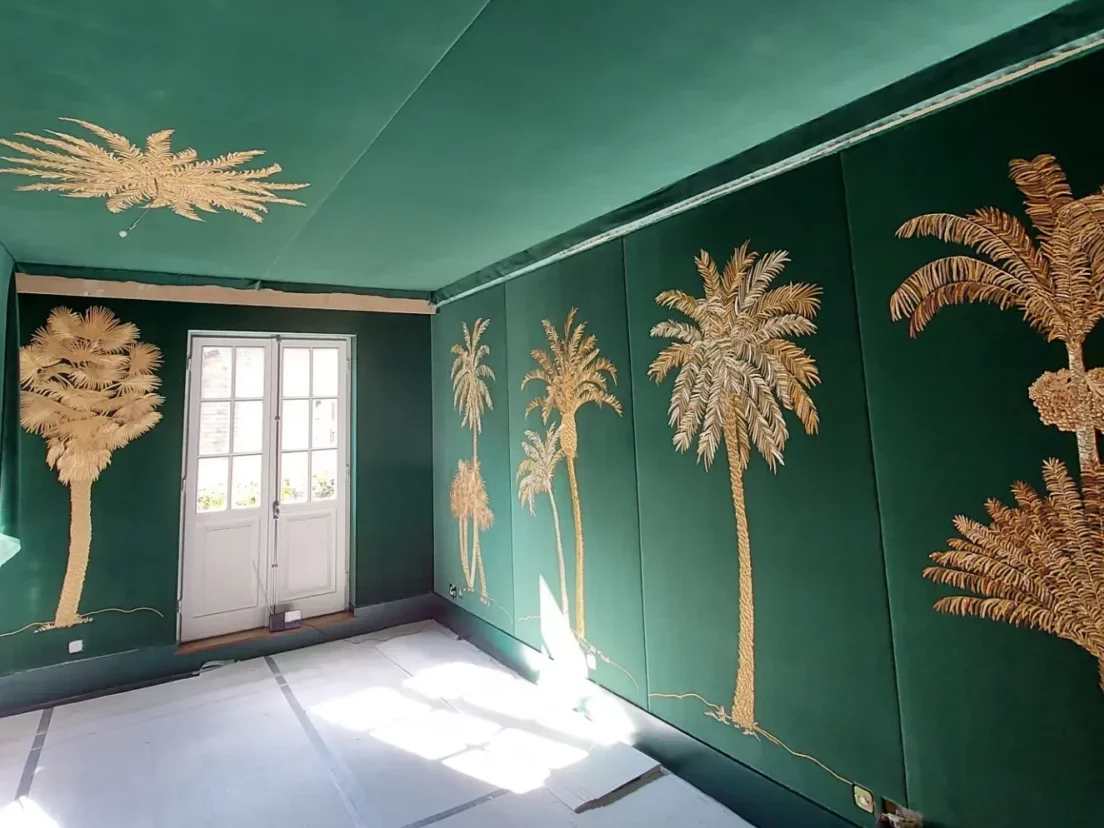
Beyond royal service, Stephen Franklin has worked extensively at National Trust properties—Britain’s most treasured historic houses—where his expertise in conservation and restoration has helped preserve irreplaceable pieces of furniture history. His work for leading interior designers and prestigious fabric houses has cemented his reputation among the industry’s most discerning professionals.
His work has been featured in the world’s most prestigious design publications: House and Garden, World of Interiors, and Architectural Digest. These magazines, known for showcasing only the finest examples of decorative arts, have repeatedly highlighted Stephen Franklin’s work, cementing his position not just as a craftsman but as a creator whose work shapes contemporary design sensibilities.

Philosophy and style: Multidisciplinary technical mastery
Stephen Franklin’s expertise extends far beyond conventional upholstery. He is recognized as one of the world’s leading experts in fabric walling and tented ceilings—complex applications that require not only upholstery skills but also architectural understanding, rigorous precision, and artistic vision. This multidisciplinary mastery sets him apart from craftsmen who work in a single specialty.


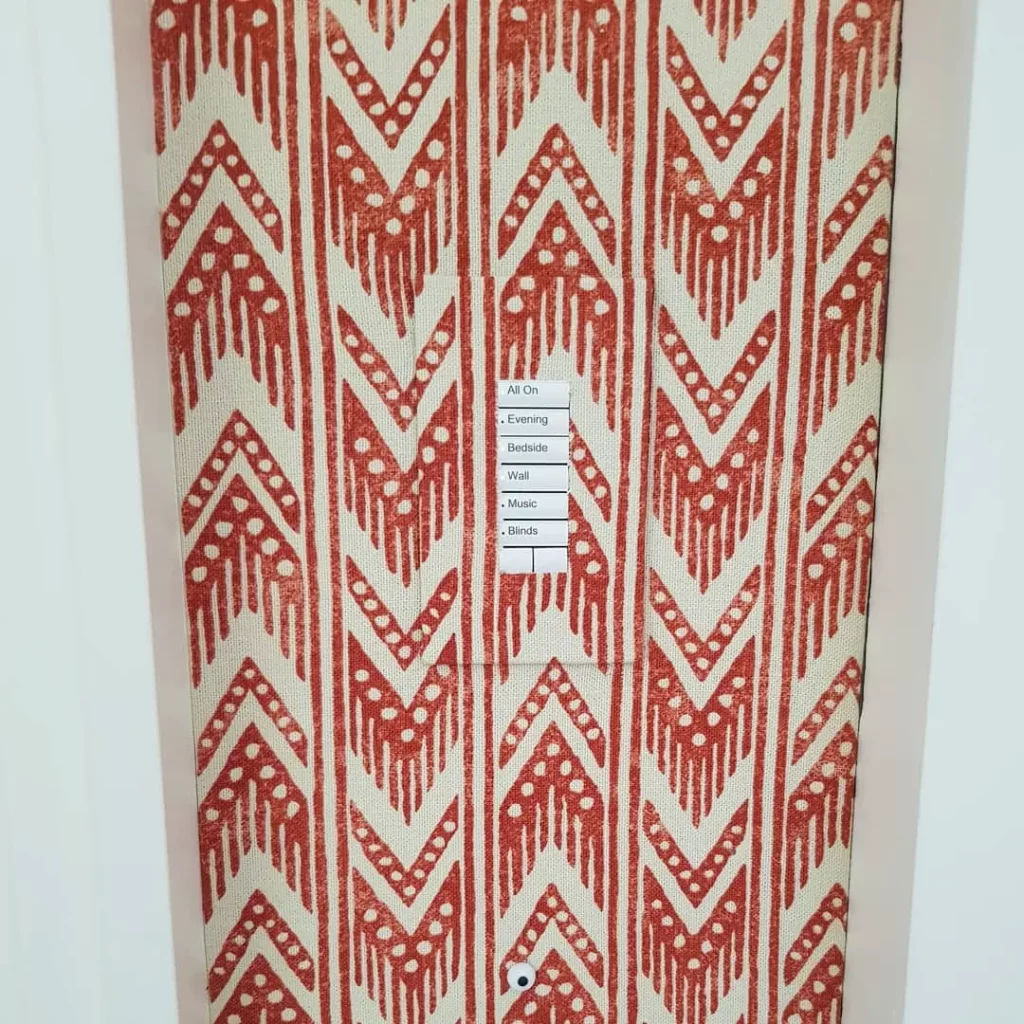
His approach combines traditional techniques with contemporary innovations, using both time-honored methods passed down through generations and modern materials where appropriate. This balance between preservation and progress demonstrates not just technical skill but the wisdom to know when tradition serves best and when innovation can enhance the craft.
His expertise in conservation work represents another dimension of his mastery. Working with antique furniture requires not just upholstery skills but deep knowledge of historical techniques, materials, and construction methods. The ability to restore a piece to its original glory while ensuring its continued preservation for future generations demands a level of expertise that few possess.
Professional recognition and distinctions
The formal recognition of Stephen Franklin’s mastery reads like a catalog of the highest honors possible in his field. He holds the Freedom of the City of London, an ancient honor that recognizes exceptional contribution to the City and the wider community. As a Freeman and Liveryman of The Worshipful Company of Upholders—one of London’s ancient Livery Companies—Stephen Franklin is part of an institution that has regulated and celebrated the upholstery trade since medieval times.
Most remarkably, on April 9, 2015, at the historic Carpenters Hall in London, Stephen Franklin achieved something unprecedented: he became the first Liveryman in The Worshipful Company of Upholders to receive an Award of Excellence from the Master, Wardens and Court. This singular achievement recognizes not just his outstanding skill, but his extraordinary contribution to preserving and advancing the craft of upholstery and soft furnishings.
Stephen Franklin long held the positions of Fellow, Director, and Assessor of The Association of Master Upholsterers & Soft Furnishers, helping to set the standards by which all other upholsterers are measured. His role as an assessor meant he was literally responsible for determining who was qualified to call themselves a master upholsterer—a responsibility that speaks volumes about the esteem in which he is held by his peers. He has since stepped down from these functions, after contributing significantly to shaping the profession’s standards.
The invitation to demonstrate his techniques at the Science Museum in London further validates his cultural significance. The Science Museum, one of the world’s leading institutions for preserving and presenting human achievement, recognized Stephen Franklin’s work as worthy of public exhibition—a rare honor that places his craft alongside the greatest scientific and cultural achievements of our time.
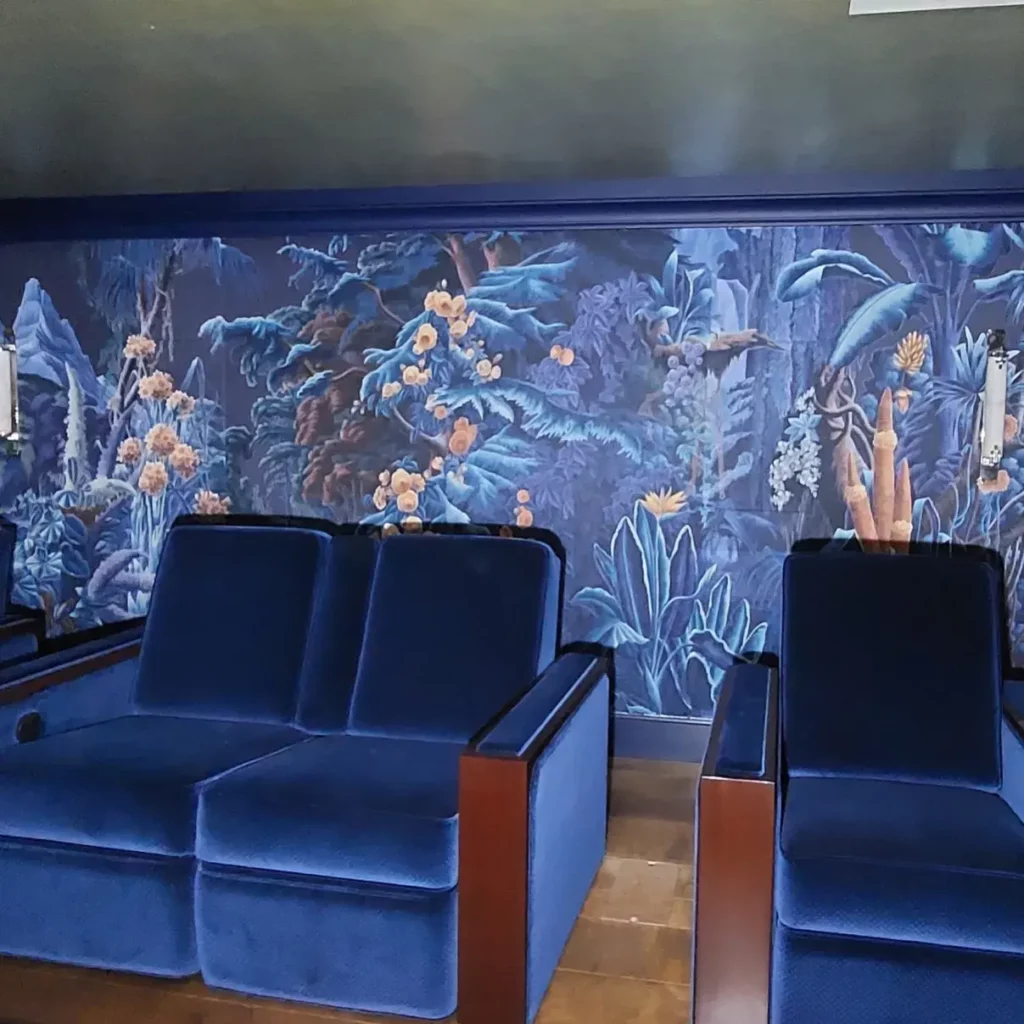
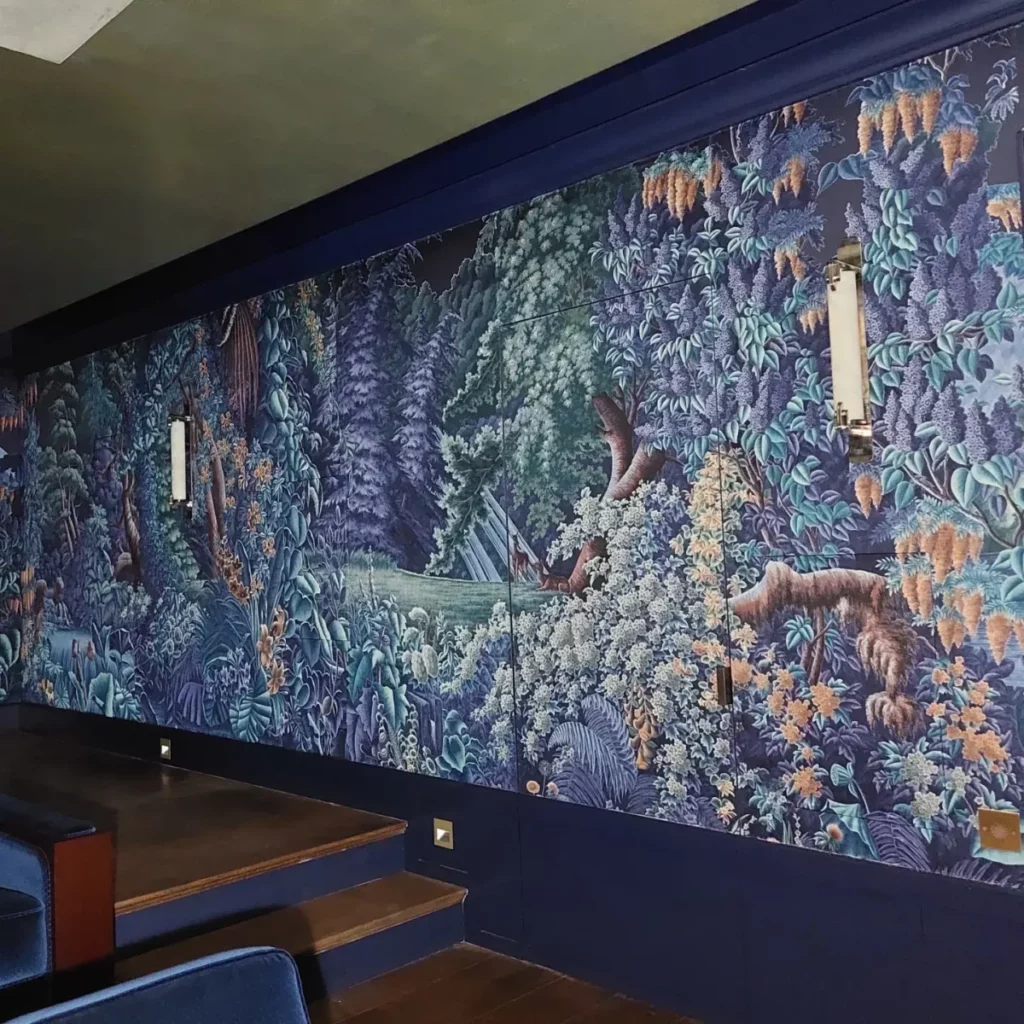
International recognition and cultural impact
Stephen Franklin’s reputation extends far beyond Britain’s borders. He regularly travels throughout Europe, the USA, and the Middle East, undertaking commissioned work for international clients who specifically seek out his unique expertise. This global recognition confirms that his mastery transcends cultural and geographical boundaries.
Clients from the Middle East, Europe, and America specifically seek out his services, often at considerable expense and despite logistical constraints, because they recognize that his level of expertise simply cannot be found elsewhere. This international recognition is particularly significant because upholstery traditions vary considerably across cultures. Stephen Franklin’s ability to work successfully with clients from diverse backgrounds, adapting his techniques to different aesthetic preferences while maintaining his standards of excellence, demonstrates a cultural fluency and technical adaptability that marks the truly great craftsmen.
His professional network also demonstrates his cultural engagement. As a member of the Furniture History Society, The Georgian Group, the Historic Houses Association, and the Heritage Craft Association, Stephen Franklin is at the center of Britain’s conservation movement, where his expertise helps preserve the nation’s cultural heritage for future generations.
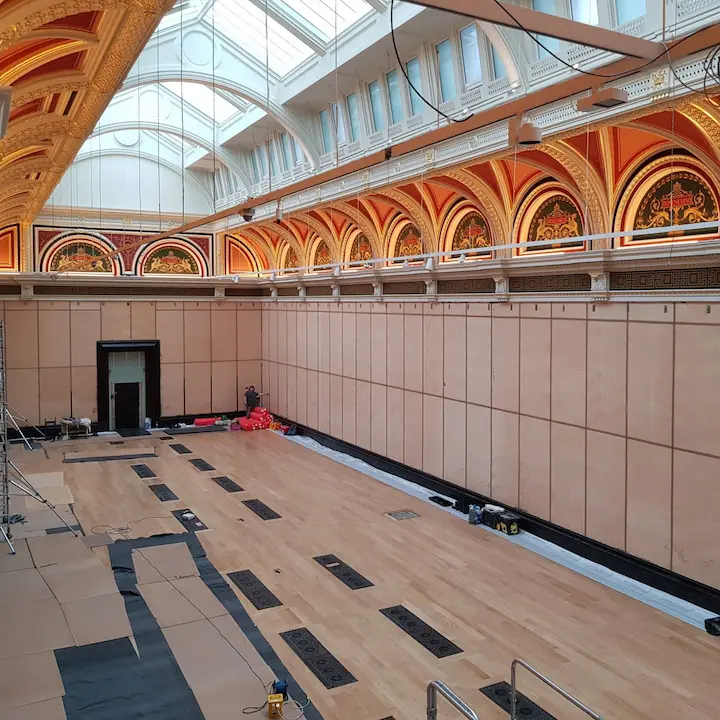
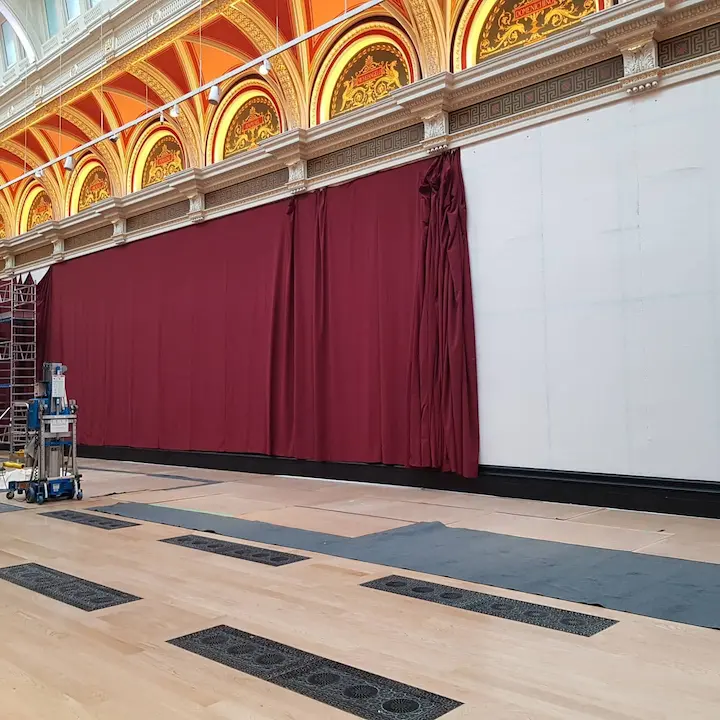
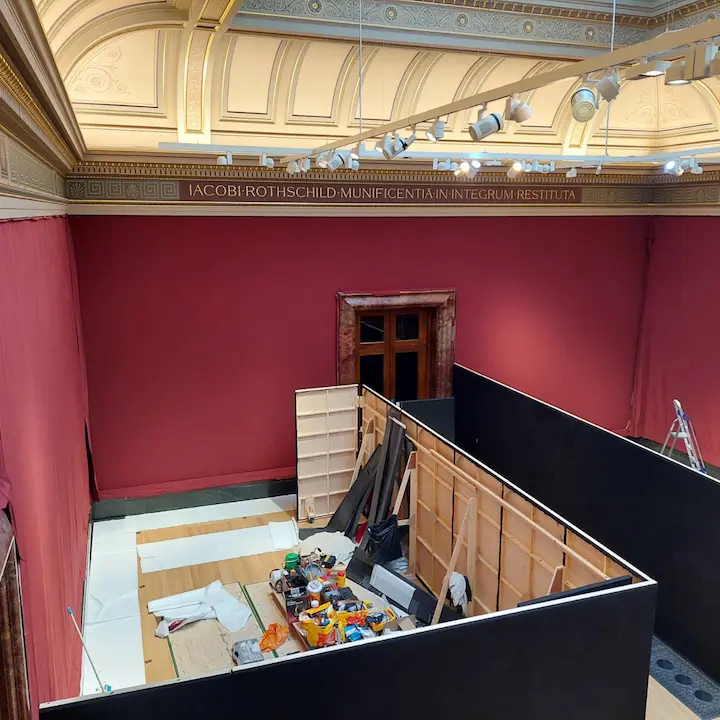
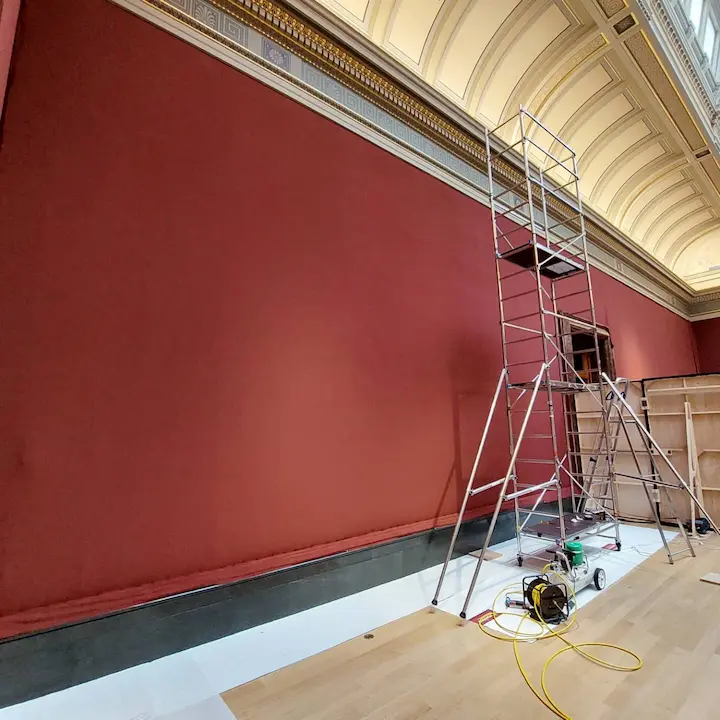
Knowledge transmission and legacy
Beyond his practice, Stephen Franklin has long been committed to transmitting his knowledge. Since 2007, he has taught accredited classes at all levels for The Association of Master Upholsterers & Soft Furnishers. Holding the EDI Level 4 Preparing to Teach qualification, he has demonstrated his commitment to educational excellence. His private workshops in Hereford have become sought-after destinations for serious students of the craft from around the world.
His former role as Director and Assessor allowed him to actively shape the standards and curriculum that will define the next generation of master upholsterers. This influence extends far beyond his individual work, impacting the entire profession and ensuring that excellence continues to be the benchmark for future craftsmen.
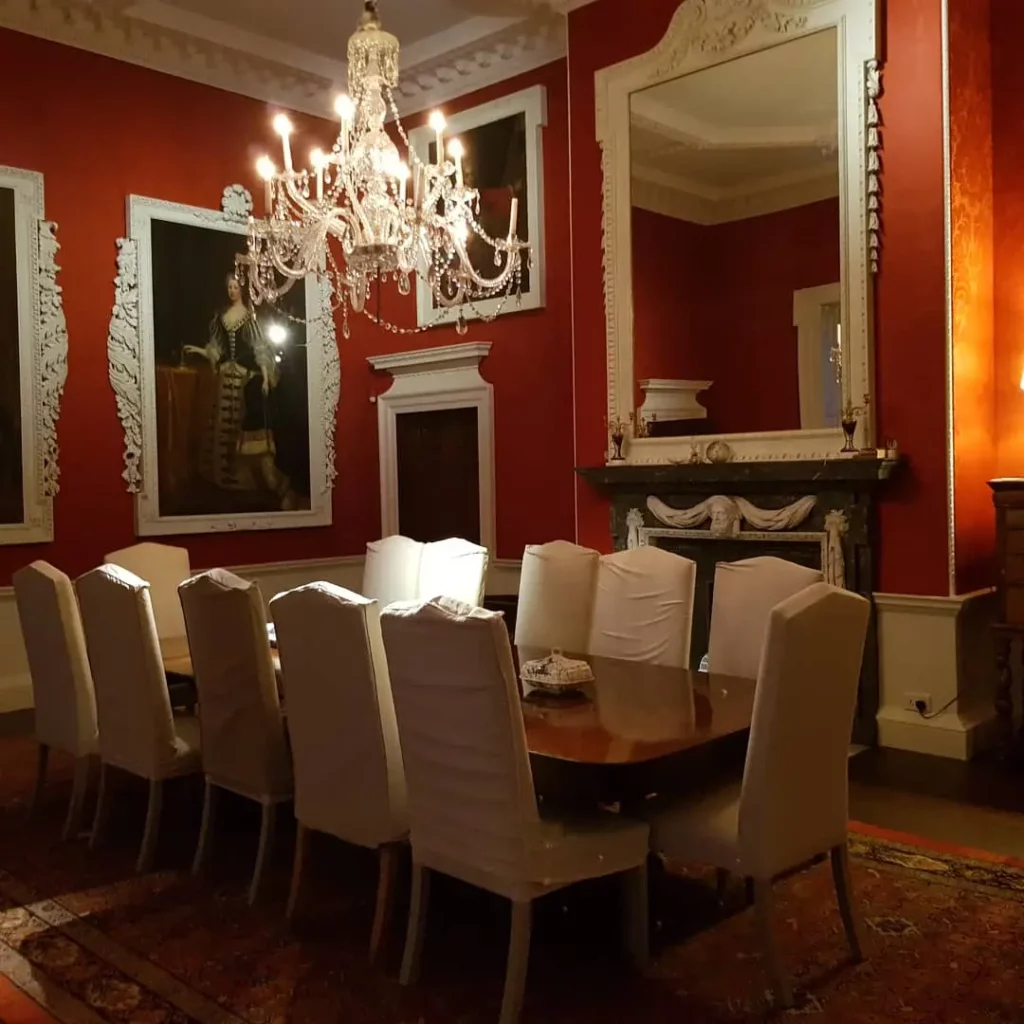
Innovation and conservation of British upholstery
Stephen Franklin embodies that discreet excellence without which the most beautiful interiors would lose their soul. His work reminds us that true luxury resides in the quality of materials, the precision of proportions, and the perfection of invisible finishes. His fabric wall coverings do not impose their presence: they envelop, protect, and sublimate.
One of the hallmarks of Stephen Franklin’s mastery is his ability to innovate within traditional frameworks. Rather than simply replicating historical techniques, he has continuously refined and improved upon them, incorporating new materials and methods where they enhance rather than compromise the craft. This progressive approach within a traditional framework requires both deep knowledge of historical methods and the wisdom to know when and how to improve upon them.
His expertise in contemporary applications—such as modern fabric walling installations and contemporary furniture upholstery—demonstrates that his mastery is not limited to historical reproduction but extends to creating new works that meet contemporary needs while maintaining traditional standards of excellence.
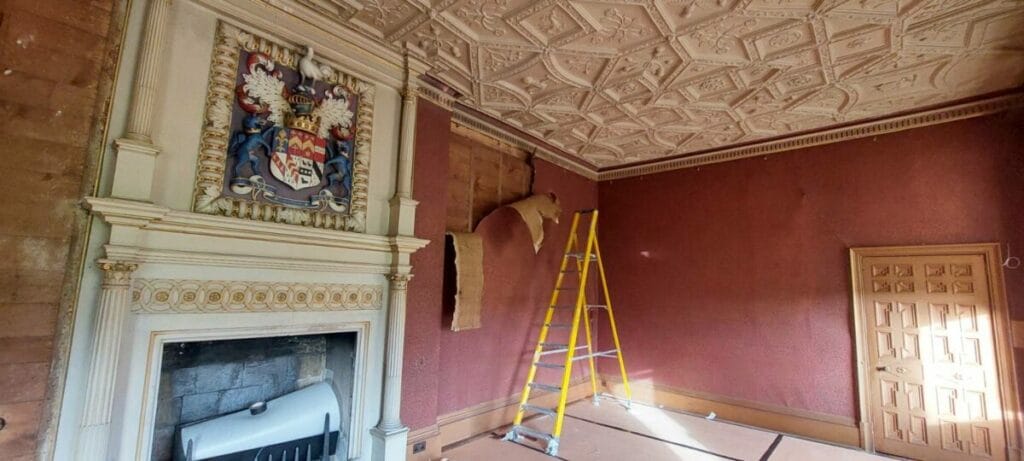
Stephen Franklin’s true legacy cannot be measured solely in square meters of stretched fabrics or restored chairs. It resides in that chain of transmission that, from master to apprentice, has perpetuated since the Middle Ages the art of transforming textile into architecture, fabric into space, material into emotion. In an era saturated with ephemeral productions, this permanence has something profoundly necessary.
Stephen Franklin’s work can be explored further at his official website: Franklin Upholstery
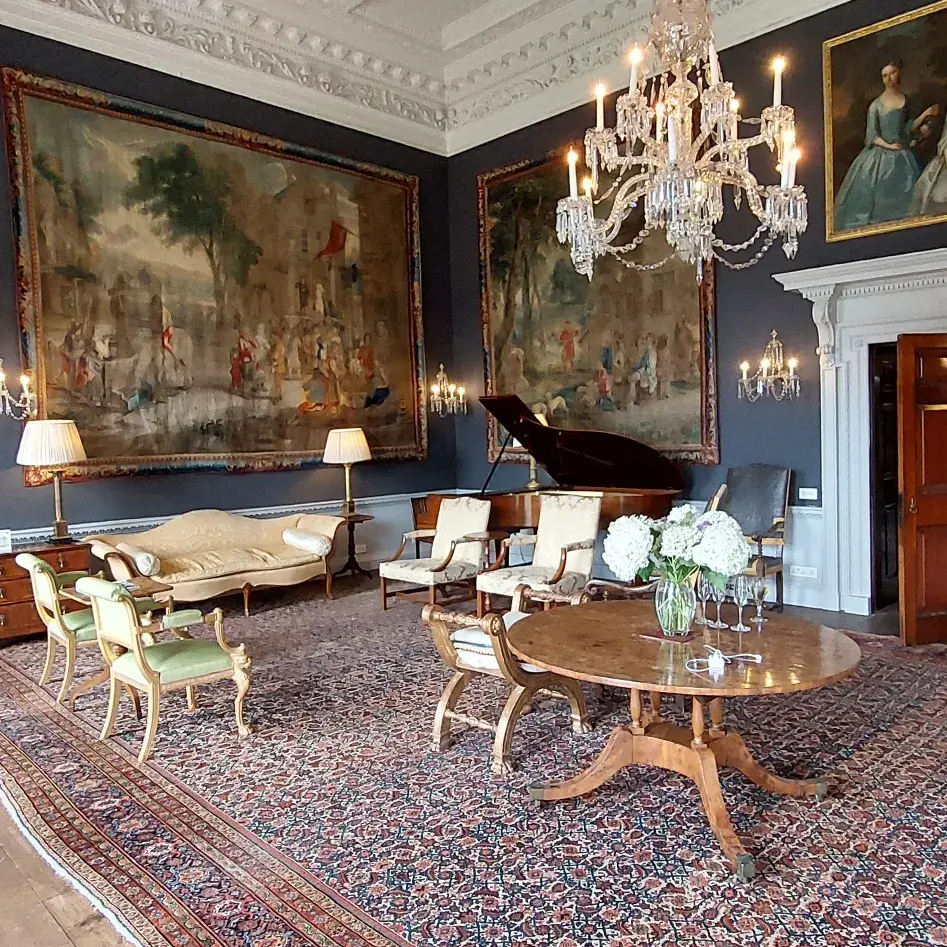
And yet, one specific transmission is sorely lacking: that of his expertise in fabric walling. While upholstery training continues through AMUSF programs, the art of fabric-walling—the specialty that distinguishes Stephen Franklin—remains the preserve of a select few. The idea of learning fabric walling directly from him would be extraordinary. Rumors suggest the possibility that he may offer such training in the near future, but demand is already expected to be considerable. For anyone wishing to master this rare discipline, understand how to stretch embroidered silk velvet, calculate wall tensions, or create those enveloping atmospheres that transform a space, the opportunity to train with a master of this caliber would be invaluable.

Digital entrepreneur and craft artisan.
My work bridges craftsmanship, design history and contemporary creation, shaping a personal vision of luxury interior design.
Since 2012, I have been based in my workshop on the shores of Lake Annecy, creating bespoke interiors for architects, decorators and private clients.

